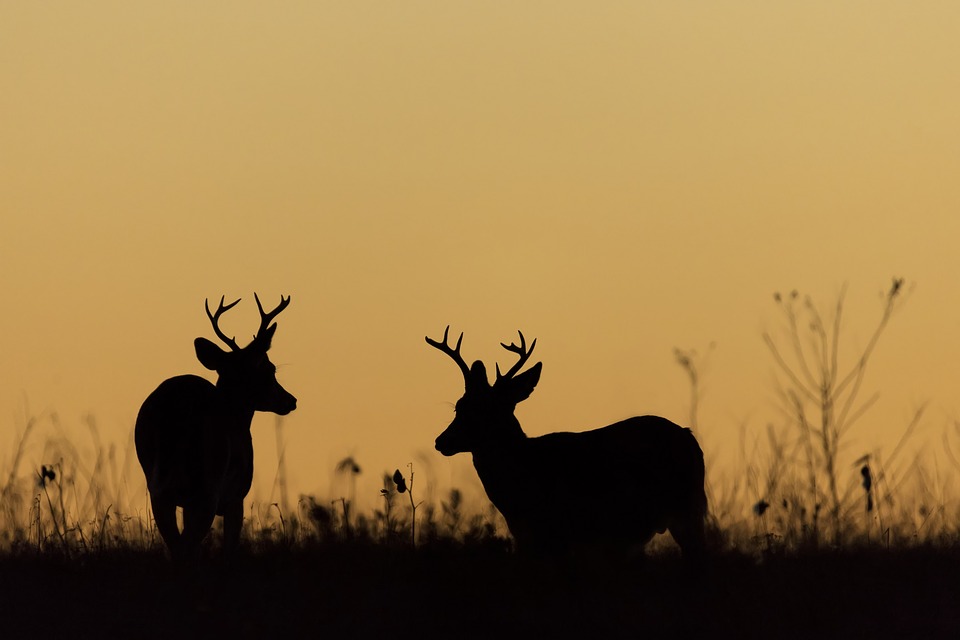
MADISON, Wis. (AP) — Outdoor enthusiasts overwhelmingly rejected Wisconsin wildlife officials’ proposals to dramatically reshape the state’s gun deer hunting structure to bolster the waning sport, a survey released Wednesday shows.
The state Department of Natural Resources has been working for years to rekindle interest in deer hunting as hunters age out of the sport and more young people ignore the outdoors. DNR records show that total gun deer license sales dropped nearly 16% between 1994 and last year. Sales to Wisconsin residents have dropped by nearly 20% over that span.
The DNR planned to submit questions about reforming the gun deer season to attendees at the Wisconsin Conservation Congress’ statewide spring hearings April 13. The congress is an influential group of sportsmen who advise the DNR on policy decisions.
The congress ultimately canceled the hearings due to the coronavirus pandemic and conducted an online survey instead. The DNR released results on Wednesday.
The biggest change the DNR proposed was extending the nine-day gun season to 19 days. The congress included a separate question asking if people would support replacing the nine-day with a 16-day season that would start in mid-November. The nine-day season currently begins the Saturday before Thanksgiving, and hunters have complained that the late start misses the rut and that the deer have stopped moving by then, leading to weak harvests.
The proposal to extend the gun season to 19 days failed by nearly a three-to-one margin, 42,208 to 14,820, with 2,261 having no opinion. The 16-day idea failed by more than a two-to-one margin, 38,106 to 15,599.
The DNR included a number of other questions centered on reducing competition from additional deer seasons. Board members fear those seasons are diluting excitement about the traditional nine-day gun season.
Those proposals included eliminating the four-day antlerless-only December hunt; prohibiting any hunting for two or five days leading up to the gun season; limiting the crossbow season to the month of October and restarting it after the gun season ends; and closing the crossbow season in November and re-opening it after the gun season. The crossbow season currently runs from mid-September to early January, in concurrence with the archery season.
The department also asked how many would support invalidating crossbow and archery buck tags during the nine-day gun season. Hunters could still legally use crossbows and bows, but they would need a firearm tag for any kill.
Respondents supported eliminating the December hunt, with about 33,000 voting to get rid of it compared with about 20,500 voting to keep it. Nearly 5,700 had no opinion.
The proposal to ban hunting leading up to the gun season failed, with 31,055 respondents voting against. Nearly 12,875 respondents said they would support a five-day prohibition. About 11,235 said they would support a two-day ban. Nearly 3,300 had no opinion.
Nearly 28,000 respondents voted against limiting the crossbow season to October and reopening after the gun season, compared to about 25,690 in support. Nearly 5,300 had no opinion. The proposal to close the crossbow season in November fared even worse, with nearly 31,700 against, 20,816 in support and about 6,100 with no opinion.
Respondents also soundly rejected invalidating archery and crossbow tags during the gun season, 35,360 to 18,169, with 5,517 having no opinion.
They also rejected the congress’ proposal to reinstate the DNR’s contentious earn-a-buck program. Hunters in areas where the program was implemented had to kill a doe before they could take a buck. The requirement was intended as a herd-control measure, but hunters generally despised it because it forced them to pass up trophy bucks. Then-Gov. Scott Walker signed a bill in 2011 outlawing the program.
Respondents overwhelmingly approved the group’s questions about whether the Legislature should raise the cost of deer and bear licenses for out-of-state residents. The questions did not propose any dollar amount.
Out-of-state residents currently pay $160 for a deer license and $251 for a bear license. Minnesota charges out-of-state hunters $186 for a deer license and $230 for a bear license. Illinois charges $411 for a deer bow license and $200 for a gun deer license; that state doesn’t offer bear licenses. Wyoming charges out-of-staters $374 for a deer license and $373 for a bear license.
The survey is advisory only.
___
Follow Todd Richmond on Twitter: https://twitter.com/trichmond1










